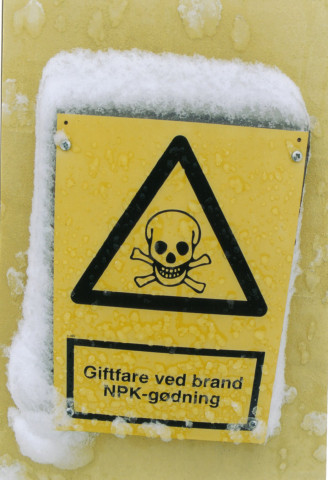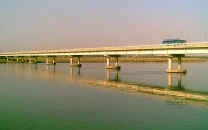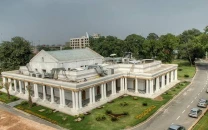Khushab’s water spreading diseases
Health experts warn against chloride, fluoride levels in the river

The Khushab public health engineering department's laboratory in Khushab has declared the drinking water in the district as contaminated and harmful to health.
Chloride and fluoride components were found in the water samples from four tehsils of the district including Khushab, Quaidabad, Noorpur Thal and Nowshera Soan Valley.
The water declared harmful to health is spreading deadly diseases, including cancer.
Commenting on the revelation, former Khushab District Health Authority CEO Dr Malik Nasir Khan Awan stressed the importance of clean drinking water for people's health. “Water is an important part of body fluids, especially in blood. Clean water is essential for the kidneys, lungs, liver and heart.
The natural fluid is essential for digestion and cleansing the intestines. If the amount of water is low, there is a risk of kidney failure.”
He added that if there was too much salt in the water, then blood pressure and fluoride would cause dental problems and the bones would become weak. He further said that the water was spoiled due to Kohistan salt in Khushab district.
Filtration plants should be installed in Khushab and Joharabad in the same way as in Thar desert, he elaborated. “There is also need of special plants to clean salty water.”
He explained that the water of Khushab and Joharabad was undrinkable. “It is not drinkable due to excess salt. Fluoride and chloride are also found in the water of other areas. For this reason, water was being supplied from near Shahpur through a water supply system during the tenure of the previous government.”
The area's leading radiologist Dr Fakhr Abbas Kazmi said that 50 per cent of patients coming for diagnosis from ultrasound suffered from kidney diseases. “The rest suffer from hepatitis, jaundice and typhoid.” He further said that clean water was a guarantee of a healthy life. “Most of the patients in Khushab district are suffering from diseases due to poor water supply.”
Kabir Ahmad, a local resident, told The Express Tribune that mineral water plants had been installed locally but they neither met the standards nor underwent any checking. “Water bottles of local brands are available in large numbers in the market. The government is providing water through supply lines in Khushab but the pipes are also risky for health.” Khushab city is full of patients with kidney stones, typhoid, hepatitis C and jaundice, he added. “Only four filtration plants have been installed in this city which are very small as compared to the population. Therefore, the government should install mineral water plants in every neighbourhood.”
The Public Health Department’s District Laboratory Research Officer Amir Lashari said that chloride and fluoride components were found in large quantities in the water of Khushab, Joharabad, Hadali, Katha, Rajar, Dhak and their environs. “There was bitter water found in Soan Valley Nowshera tehsil and there was a high level of fluoride. Components found in hard water from springs are also harmful to health.”
Fluoride and chloride had been found in the water of Noorpur Thal tehsil, he added. “Similarly, both chloride and fluoride have been found in the drinking water of Quaidabad tehsil of Khushab district. The situation in the area along the river, which is also called Kadi, has also deteriorated.”
Water in this area also contained fluoride ingredients, the official revealed.
He elaborated that overall Khushab's water was not safe to drink and was damaging to the health. “Chloride content in water spreads cancer, cholera, gastrointestinal diseases and mental illness. Fluoride weakens bones and causes dental problems. The hardness of water causes kidney stones, high blood pressure and acidity.”
No amount of arsenic was found in the water from any place in the district, he concluded.
Published in The Express Tribune, February 10th, 2021.


















COMMENTS
Comments are moderated and generally will be posted if they are on-topic and not abusive.
For more information, please see our Comments FAQ